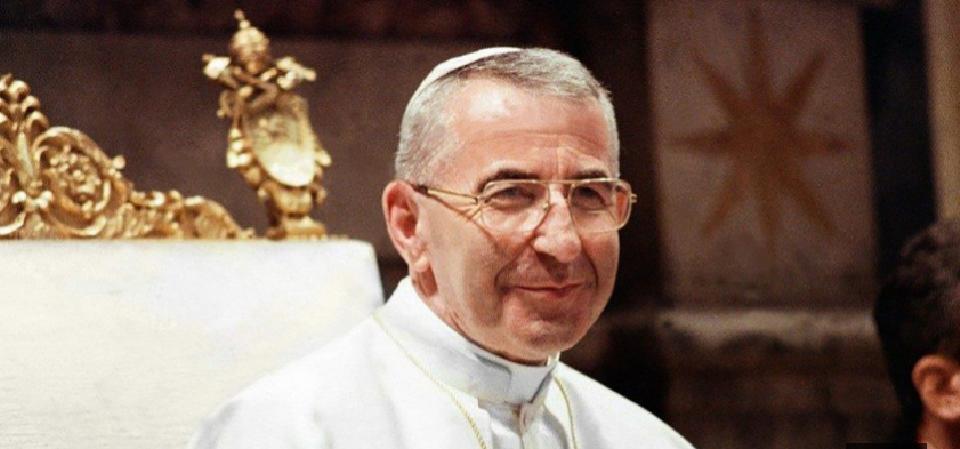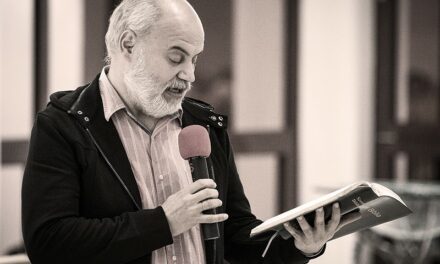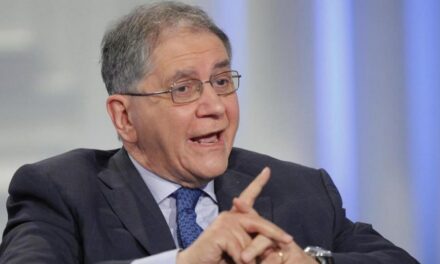Today's beatification of John Paul I, who led the Catholic Church for only 33 days in 1978 and is known as the smiling pope, promises to be the first Vatican mass event after the pandemic.
The Holy See newspaper, L'Osservatore Romano, called John Paul I one of the genius popes of the twentieth century. Pope Francis will present the beatification mass on Sunday morning in St. Peter's Square, where hundreds of thousands of people are expected, mainly from the dioceses of Italy, despite the rainy weather. This will be the first real mass event since the lifting of the epidemic restrictions. On Saturday evening, a vigil will be held in the Basilica of St. John Lateran.
Born in 1912 near Belluno, Veneto, Albino Luciani was elected Pope on August 26, 1978, and was found dead in his Vatican suite on the morning of September 28. His tomb is located in the sub-church of St. Peter's Basilica. During his papacy, which lasted barely a month, he held a few audiences, gave speeches, and issued documents, but during the process of his beatification, his entire priestly service was taken into account.
"44 years after his death, the figure of Pope Luciani is still attractive today because of his deep spirituality," wrote l'Avvenire. The daily newspaper of the Italian Bishops' College pointed out that he was barely elected,
John Paul I had already introduced a new style in the Vatican in the name of simplicity and the spirit of the Gospel. He renounced previous customs such as the use of the princely plural, the crowning of popes, he did not want to sit on a throne, although he carried himself on a stretcher during the audiences, as this way the faithful could see it better from afar, even in the absence of projectors at that time.
His watchword was humility, he proclaimed the church's vow of poverty, advocated the search for truth and peace, board leadership, interfaith dialogue, and missionary service. He used to say that a priest cannot have a bank account - he was remembered at the press conference in Szentszék before his beatification.
John Paul I spoke to his contemporaries about the need for peace: he wrote a letter to Anwar Sadat of Egypt, Menahem Begin of Israel, and Jimmy Carter of the United States, who signed the Camp David Peace Agreement in September 1978. He was the first pope to quote from the Koran in one of his speeches accompanying the Angelus prayer.
Albino Luciani was known for his commitment to the church and society in Italy. He was ordained a priest in 1935, bishop of Vittorio Veneto in 1958, patriarch of Venice from 1969, cardinal in 1973. In the early 1970s, he was vice president of the Italian Bishops' Conference (CEI). Among other things, he also worked as a church journalist. He personally experienced the economic transformation process of the decades after the Second World War and its impact on the life of the working class. As the Patriarch of Venice, he took a role in mediating between the factory owners and the striking workers.
He participated in World War II between 1962 and 1965. Vatican Council and was in close contact with his predecessor, VI. With Pope Paul. The cardinals decided on his election as head of the church in just 26 hours; according to later reports, the papal conclave proposed the Polish Karol Wojtyla instead, who became the next pope in October 1978.
János Pál I was the first to choose a double name for himself after his predecessors XXIII. John and VI. Following in Paul's footsteps.
His co-workers found him dead in his bed on the morning of October 4, 1978. Vatican Radio announced the news. He officially died of cardiovascular disease. His death was accompanied by speculation, but at the press conference in Szentszék before his beatification, it was repeatedly stated that he died of natural causes.
His beatification process began in 2003, and in 2021 the miracle attributed to him necessary for beatification was recognized, according to which in 2011 a prayer addressed to him helped to heal a terminally ill little girl in Buenos Aires.
The beatification mass on Sunday begins with a speech by the bishop of Belluno-Feltre, and then the so-called postulators accompanying the church process present the life, work and virtues of John Paul I. At the mass, the relic of János Pál I is exhibited: it is a sheet of paper placed in a cross-shaped, carved wooden reliquary, on which he wrote down the three theological virtues, the words faith, hope and love, in 1956.
Pope Francis canonized several of his predecessors: in 2014 XXIII. John and II. John Paul II was canonized in front of a crowd of 800,000, and in 2018, John VI. Paul.
Source: Sunday/MTI
Image: Vatican News












